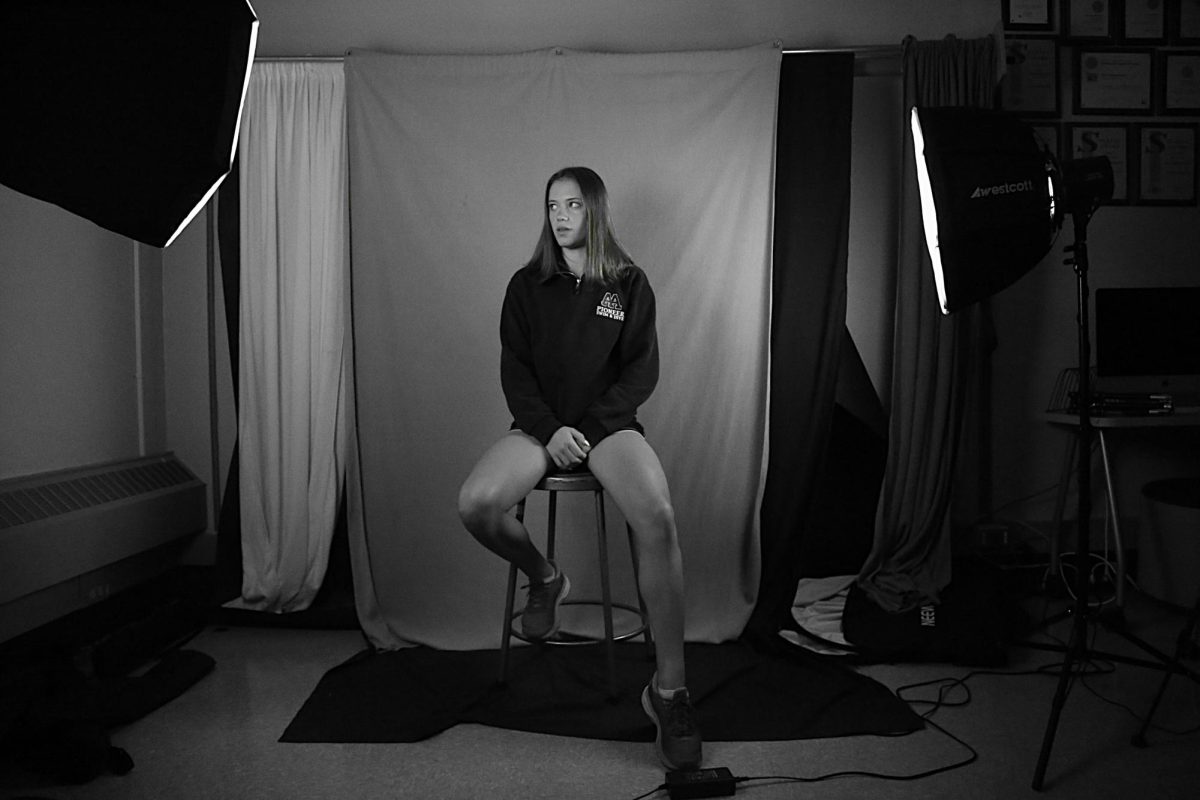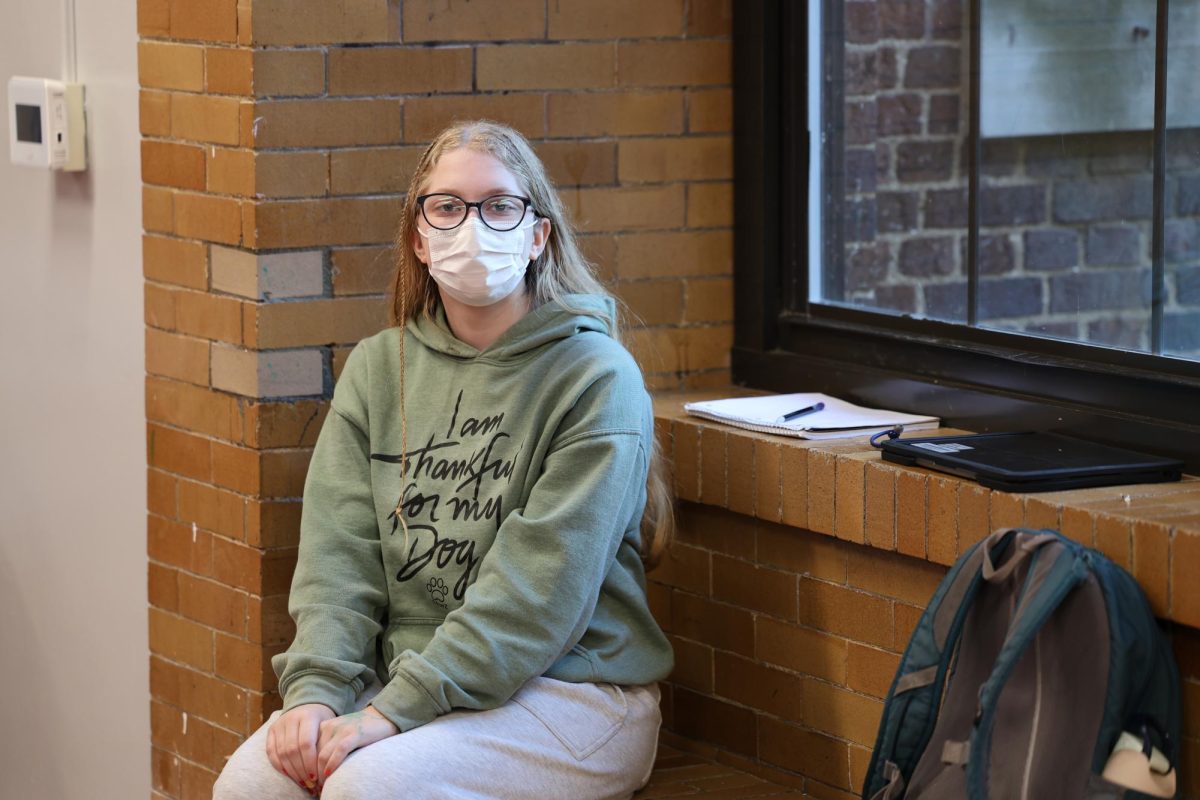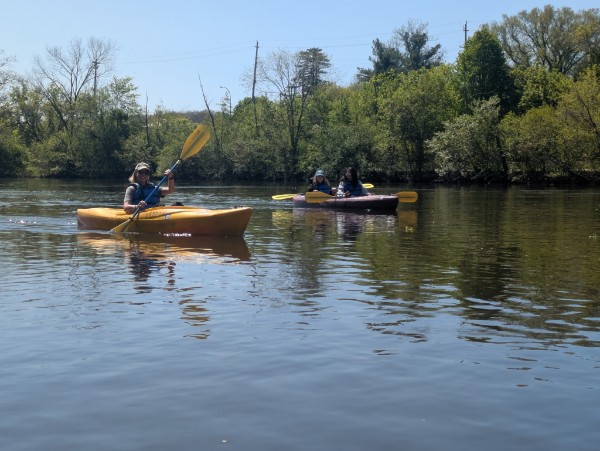When she got her driver’s license, she didn’t think twice about being a donor; however, she never would have expected the order of the transplant list to take up 40 percent of her mental capacity.
In mid-August, Ava Griffith’s 14-year-old brother was at summer camp when he lost feeling in his arm and subsequently passed out. He spent the following month in the C.S. Mott Children’s Hospital. Eli Griffith’s life has been forever changed.
But for Ava, things had to carry on as normal. School, swim and work all chugged ahead at full speed, but Ava was only operating at 60 percent of her normal capacity. Her life doesn’t stop just because her brother’s might.
For Eli’s whole life, he has tired quickly, leading him to avoid team sports. The Griffiths never knew why. When he was younger, they thought it could be asthma. Looking back now, Ava remembers family hikes in Colorado where they took additional breaks to accommodate him — little did they know that it was due to his condition.
The original Aug. 16 diagnosis was cardiac syncope (a brief loss of consciousness and muscle control due to the heart failing to pump the brain the blood it needs) but after a week of testing, the diagnosis was heart failure due to bilateral cardiomyopathy. His heart was inflamed on the right side, pressure was building and he needed a heart transplant as soon as possible.
“[When I realized that] he was going to need a heart transplant, that wrecked me,” Ava said. “It’s just been a roller coaster.”
The tricky thing about a heart transplant is that someone else has to die in order to produce an eligible heart, which could happen at any moment or could take months. In the meantime, 14-year-old Eli’s heart could need electronic assistance for the rest of his life.
Ava was left to carry on with her regularly scheduled life: morning swim practice three times a week, school five days a week, afternoon training after school, swim meets on Thursdays, at least two hours of homework every night, eight hours of work on the weekends; the list goes on.
After a few procedures, including one that planted a permanent IV in his arm, Eli’s new friend followed him everywhere. The IV cart dubbed “Carl” provided the necessities that kept him up and running while he — and his whole family — sat in the unknown of what could come next.
Transplant lists are ordered numerically and alphabetically, with 1A being the top of the list. However, heart transplants are delicate: blood type, distance from donor to recipient and various other factors can have an impact on who receives an available heart.
Luckily, Eli was near the top of the list.
On Wednesday, Sept. 18, Ava was at swim practice — just like any other day after school — when she got the call. The time was 2:42 p.m. and her brother was getting a new heart. The empty pool deck echoed the sounds of excitement emerging from her phone right back to her.
The surgery was scheduled for the next day.
Ava sat in fourth block Precalculus, learning about polynomial functions. Her phone lay face up on the table, awaiting updates. 1.3 miles away, Eli and both her parents were in the hospital awaiting the procedure.
There were a few possible outcomes: the new heart takes, meaning that the right side kicks in, all numbers are good, and they close him up the same day; or, if the new heart doesn’t take, then Eli’s chest is left open (covered in a sterile film) while they monitor it. From here, the heart could either kick in or not. If it doesn’t, then a replacement for the replacement is needed.
Ava’s foot bounced below the table as she tried her best to focus on the global maxima of the graph. Eventually, she got a text: the heart was en route.
At 10:15 a.m. the surgery began. By 12:16 p.m. he was fully sedated. 2:23 p.m. and Eli’s original heart was no longer in his body.
All the while, at 6 p.m., Ava’s Thursday night swim meet began, but on surgery day she was too nervous to swim. She warmed up and cheered on her team just like normal, but today wasn’t about how fast she could swim laps around a pool. Today was about far more than that.
Finally, by 8:23 p.m., Eli woke up with a new heart.
Almost a week after the surgery, he’d been disconnected from the machines that kept him alive. He was working with a physical therapist and professionals who are hopeful that he will return to school — as a member of CHS’s McCormick forum — by second semester.
When Ava turns 18, she plans on getting a tattoo to commemorate the whole debacle: a realistic heart with the number of days Eli spent in the hospital. However, the exact number is yet to be determined.
“I’m a lot more appreciative because everyone’s fighting their own battle with themselves,” Ava said. “Whether it’s mental health, depression or something at home, you never know.”








